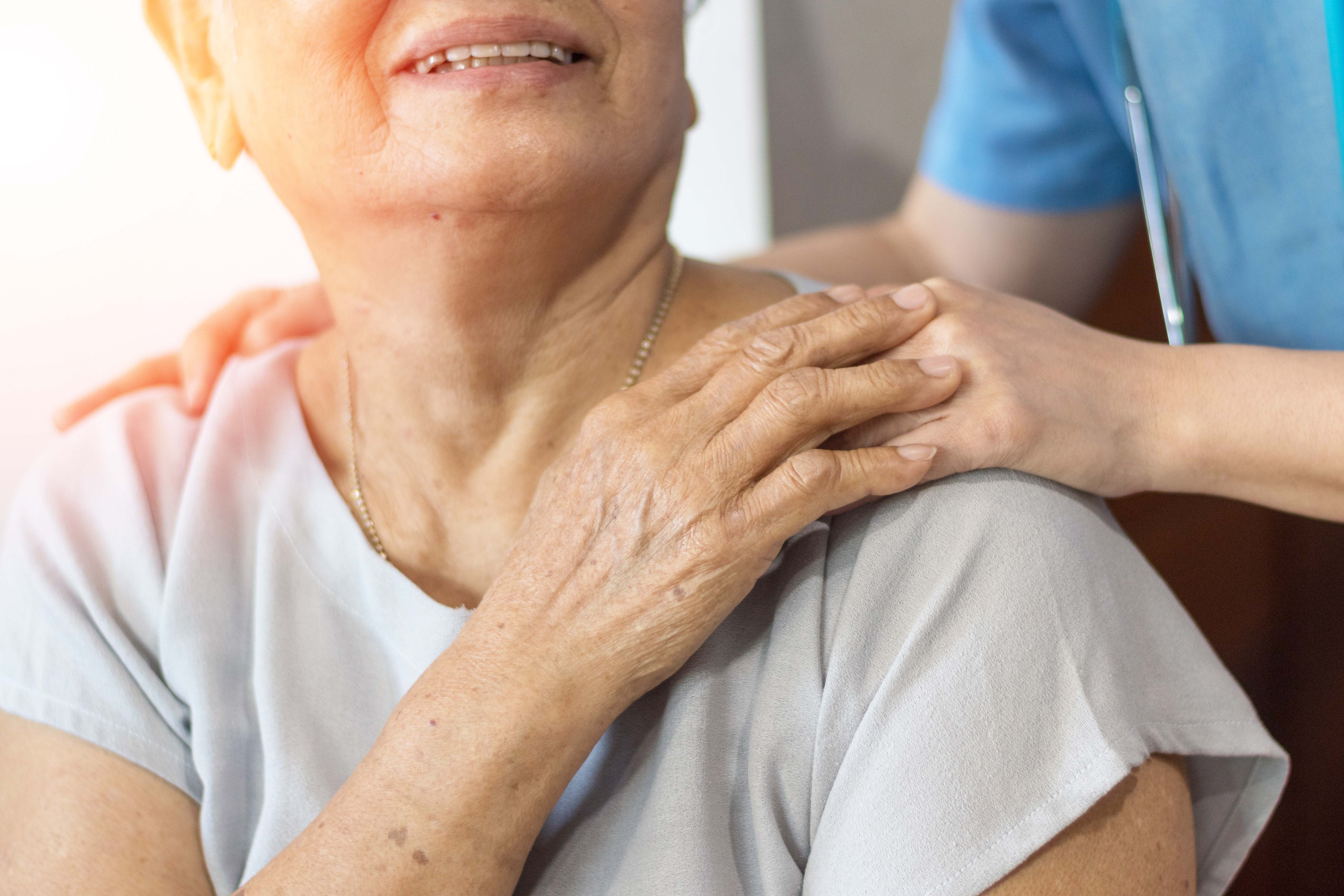By Dr. Beverly Johnson, Dr. Barbara Astle, Dr. Djenana Jalovcic, et Muriel Mac-Seing.
Canada’s long-term care (LTC) Facilities in most provinces have been devastated by the COVID-19 pandemic. While the overall COVID-19 mortality rates in Canada were relatively low compared to other OECD countries, Canada had the highest proportion of deaths in LTC facilities.[1] It is critical we prepare now for a second wave of the pandemic and insulate our aging population from future pandemics. If we are to succeed in “Building Back Better” in Canada’s LTC Facilities, a priority to protect our valued, respected, and loved aging population is critical. In addition, gender issues must also be addressed. The COVID-19 pandemic exposed serious vulnerabilities, such as, inadequate staffing levels to provide appropriate care for older adults[2], and the gendered nature of crisis in these care facilities, as both the residents and caregivers are predominantly women.[3]
At the briefing by WHO Director-General Tedros Adhanom Ghebreyesus on March 11, 2020, the world listened as the WHO declared a pandemic, stating that at that time there were more than 118,000 cases in 114 countries and 4,291 people had lost their lives. In his words - “Some countries are struggling with a lack of capacity. Some countries are struggling with a lack of resources. Some countries are struggling with a lack of resolve.”[4] In the nearly four months since that declaration, COVID-19, the first coronavirus that has caused a pandemic, has spread to 188 countries, with 12,821,887 confirmed cases and 567,101 deaths.[5]
Long-term care is an essential service for our aging population and others who require 24-hour complex medical-nursing care. The infectious coronavirus spread quickly in Canadian LTC facilities, infecting both staff and patients. Although statistics about the spread of Coronavirus in LTC facilities are not readily available, by May 2020, more than 840 outbreaks were reported with devastating consequences.[1], [6] It was estimated in May that 82% of all deaths reported in Canada were in LTC facilities.[1]
Canadians watched the news reports learning of the multiple challenges facing the LTC facilities across the country. Issues included multi-bed rooms which did not allow for spacing between residents with quick spread of the virus. Prior to COVID-19, one of the biggest challenges in the LTC sector were inadequate staffing levels which the pandemic exacerbated. As of the end of May, almost 10,000 long-term care staff providers had COVID-19, nine of whom died, resulting in increased absenteeism and staffing shortages.[6]
Caregiving is still seen as a women’s domain, and the work of informal and formal caregivers is undervalued, unpaid or in case of paid employment, underpaid.[3] As an example of undervaluing of the caregivers’ work and lives was a shortage of personal protective equipment (PPE) that many of them faced. In addition, many long-term care providers were forced to work in several long-term care homes just to make a living wage because jobs in the LTC facilities are mostly part-time or casual low-wage positions without benefits. This was another factor that contributed to spread. After the rapid spread of coronavirus, many provinces in Canada restricted the employment of caregivers to one setting only.[1] Both federal and some provincial governments increased the pay of the front-line LTC workers. To respond to the emergency in LTC facilities, the governments of Ontario and Quebec called in the Canadian Armed Forces to be deployed in long-term care facilities.
Our military provided much needed support to long-term care homes in Ontario and Quebec, which we are grateful for. Staff were heroines and stories were shared of workers who moved into the home to fill care gaps and reduce the likelihood of bringing infections to residents.
Many Canadians, including the WGH Canada team, call for a recognition of caregiving work through full-time employment with benefits that is adequate to the value of their important contribution and create a better working environment. We must ensure access to PPE and proper training on infection control. We also need to consider the staff to resident ratio and make sure this is adequate and safe for residents in LTC. As most long-term care workers are female, a gender equity issue in their remuneration must be addressed. It is important that these female healthcare workers have a place at the leadership table to bring their voice to the needed changes.
It’s time to Build Back Better and there are many priorities: private rooms, better employment conditions, adequate staff to resident ratios, an important discussion on adequate pay and hours and these women workers can and must be at the leadership table. Globally 70% of the health care workforce is female and yet only 25% of the leadership is female. Women in Global Health Executive Director, Dr. Roopa Dhatt states: “the COVID-19 pandemic has exposed the deficiencies in our health and social care systems that have left our most vulnerable citizens, especially older people in care homes, exposed to infection in many countries. Building back better means rethinking the social value of work and putting far higher value on the, mainly female, health and social care workers who care for all of us.” In response to the COVID-19 recovery efforts, Women Deliver recommends ten actions to build a stronger and more gender-equal world. [7] They are urging governments, the private sector, civil society, and multilateral organizations to use these recommendations and apply a gender lens to the COVID-19 response, preparedness, and recovery efforts.
In Canada and across the globe, let us value our seniors, let us respect their health care providers. WGH Canada urges leaders to BUILD BACK BETTER before the second wave of the pandemic.
About the Authors
Dr. Beverly Johnson MD CCFP serves as Chair of the WGH Canada Launch Committee.
Dr. Barbara Astle, PhD, RN is a member of the WGH Canada Launch Committee.
Dr. Djenana Jalovcic, EdD is a member of the WGH Canada Launch Committee.
Muriel Mac-Seing, PhD Candidate in Public Health (Global Health Option) is a member of the WGH Canada Launch Committee.

References
[1] Hsu AT, Lane N, Sinha SK, et al. Impact of COVID‐19 on Residents of Canada's Long‐Term Care Homes – Ongoing Challenges and Policy Responses. International Long Term Care Policy Network. LTC Responses to COVID‐19. https://ltccovid.org/wp-content/uploads/2020/05/LTCcovid-country-reports_Canada_Hsu-et-al_May-10-2020.pdf. Published 2020. Updated May 10, 2020. Accessed July 12, 2020.
[2] Canadian Nurses Association (CNA) [2020]. 2020 Vision Improving Long-term Care for People in Canada. https://www.cna-aiic.ca/en/news-room/news-releases/2020/cna-calls-on-governments-to-redesign-long-term-care-to-address-serious-vulnerabilities
[3] Estabrooks, C. A. & Keefe, J. COVID-19 Crisis in nursing homes is gender crisis. (2020, May 19). Institute for Research on Public Policy. Accessed on July 12, 2020 https://policyoptions.irpp.org/magazines/may-2020/covid-19-crisis-in-nursing-homes-is-a-gender-crisis/
[4] World Health Organization (WHO) [2020]. WHO Director-General's opening remarks at the media briefing on COVID-19 - 11 March 2020. Accessed on July 8, 2020. https://www.who.int/dg/speeches/detail/who-director-general-s-opening-remarks-at-the-media-briefing-on-covid-19---11-march-2020
[5] Johns Hopkins Coronavirus Resource Centre. Accessed July 12, 2020 https://coronavirus.jhu.edu/map.html
[6] Canadian Institute for Health Information. Pandemic Experience in the Long-Term Care Sector: How Does Canada Compare With Other Countries? Ottawa, ON: CIHI; 2020
[7] Iversen, K. (2020). Applying a gender lens to COVID-19 response and recovery. https://medium.com/@Katja_Iversen/applying-a-gender-lens-to-covid-19-response-and-recovery-2fe19255746f

